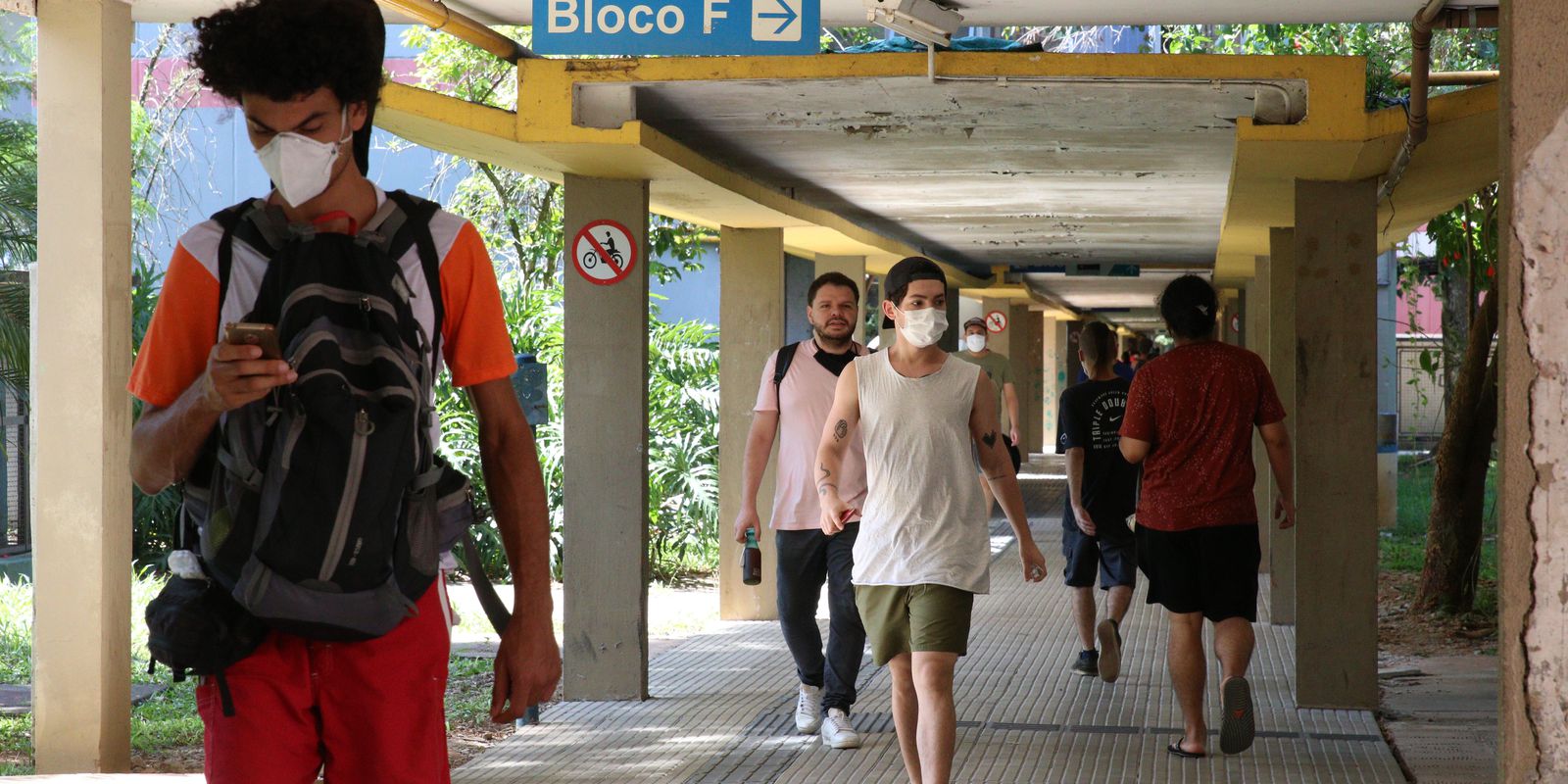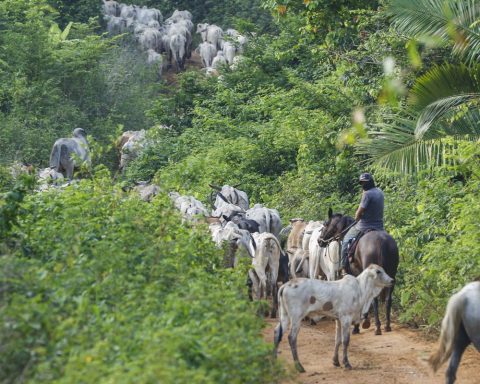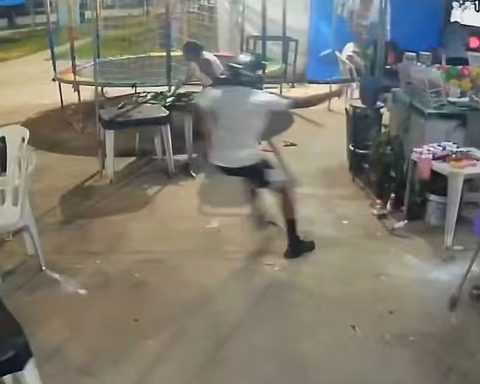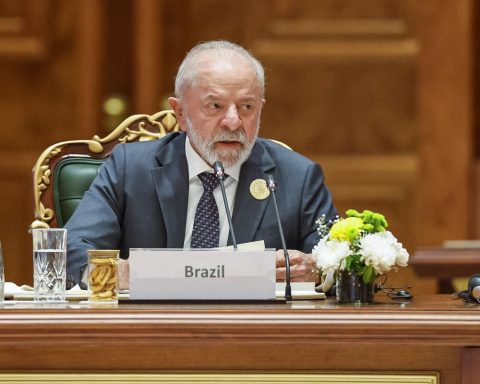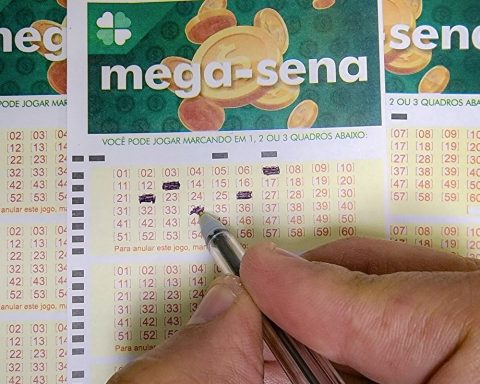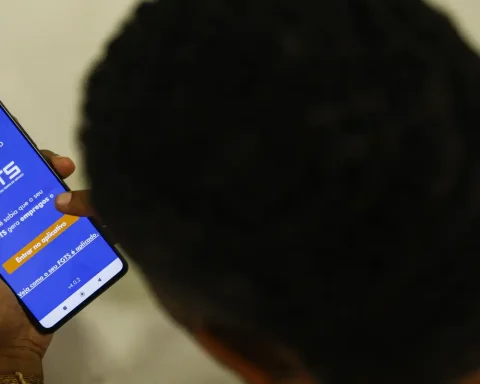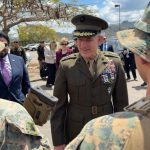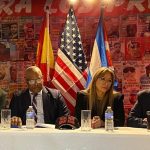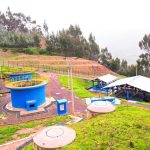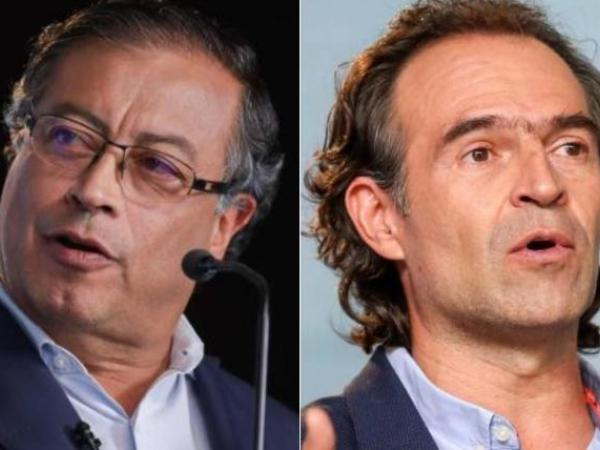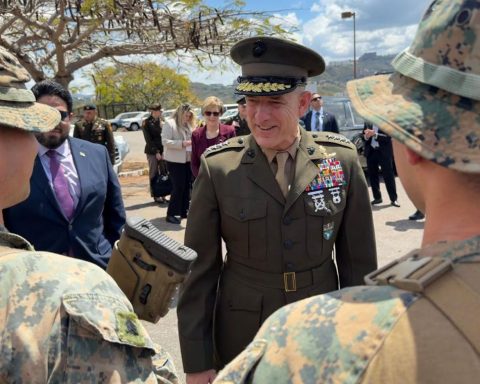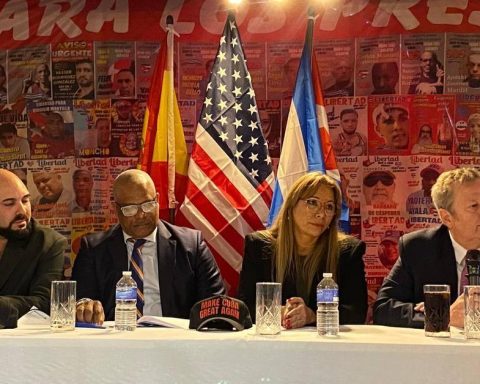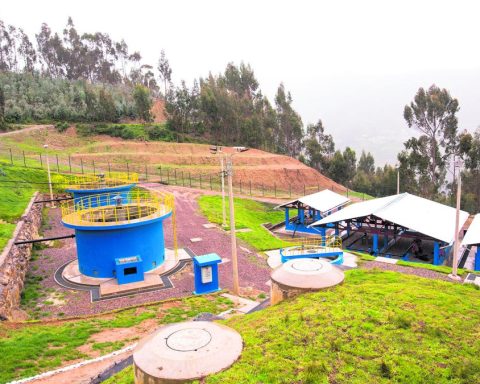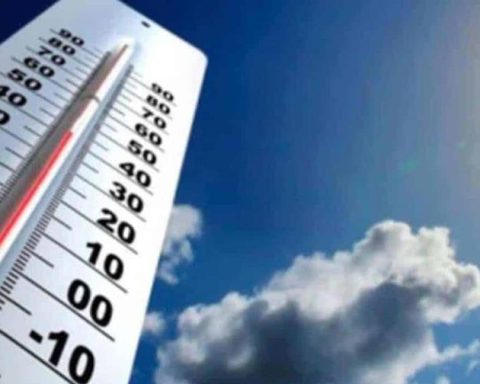Student Rian Pereira Fernandes had only two weeks of classes at the Faculty of Arts of the University of São Paulo (USP) when the covid-19 pandemic began, in 2020. Freshman, he had just joined the university when face-to-face classes were interrupted to give way to remote teaching. 
“The online issue was very complicated. The mental situation was very important and it was a little shaken, but I think the academic and coexistence issues were also damaged.”
After two years studying on the internet, the young man said he is excited about the face-to-face return – which began, for part of the USP students, on March 14th.
“I’m happy because I’m seeing my friends and taking real classes. But there are things that take away some of our happiness: the crowded buses, the tray always full. There are days when my class ends at noon and starts again at 2 pm, sometimes I can’t have lunch. Just yesterday I couldn’t have lunch or dinner, because the lines are huge. I’m happy to see things getting back to normal, but some things could go back better.”
Despite university difficulties, he believes that returning to school on campus will be better for everyone. “Human contact is paying off, I wanted it to go back to face-to-face, because I feel that in the two years of the pandemic I didn’t learn much, not so much because of the teachers, but, in the online, contact is lost and, in the face-to-face, the teacher see how the students understood. Classes are being more didactic, they are flowing better, the content is not given in a hurry, it is a very positive point and I expected a lot”.
The report of Brazil Agency was in the university city of USP, in the west of São Paulo, to talk to students returning to university banks after two years of online studies, during the most critical period of the global health outbreak. Most of the interviewees celebrate the possibility of being able to have contact with colleagues and teachers again.
Reception
Like Rian, over 100,000 undergraduate and graduate students who are in their second and third years of course had the opportunity to attend the campuses in the last 15 days – some of them for the first time. The reception week at USP also had around 11,000 students who entered this year through the Fuvest entrance exam and through the Unified Selection System (Sisu).
After the first week of welcoming the freshmen with integration activities, classes began in earnest. Something dreamed of by student Lívia Coimbra Muniz Cordeiro, 19, who left Sumaré, in the interior of São Paulo, to study Literature at USP.
“I’m a low-income person, so coming here is a victory. I didn’t spend so much time thinking about the situation of the pandemic, if I would go back to face-to-face, because just being here was already a great glory in my life, for all the difficulties I went through, being able to go through everything and today I’m studying at the biggest university of Latin America”, celebrates.
USP is considered the best university in Latin America, according to the ranking formulated by the US News College.
For the university student, the return to face-to-face classes was highly expected, even with some disadvantages. “Distance learning had its good and bad sides. The good thing is that we had a lot more time to organize ourselves because we were at our house, we could read the texts, the tests were not in person, we had more time to do the work, so I think that this issue of academic organization was a little more easy, not least because I didn’t have so much social contact either. I get distracted a little when people are talking. I really like to talk. But being isolated is good for studying.”
The downside, in her estimation, was the lack of real academic contact. “Living in the classroom, eating from the tray, interactions with teachers. It’s a unique experience, if you don’t have it, you can’t say you went to university, because it’s not the same thing”, says Livia, who passed the entrance exam in 2021.
Classmate of Livia, the student Joyce de Sousa Silva, 20 years old, resident of São Paulo, said that university life is not limited to studies.
“I realize now, in person, that college is much more than just being in a class reading books. I love the books, what the professors teach, but college is a very different thing. It’s also been less stressful than it was in distance learning. Here, in addition to studying, I relax and chat with friends. Seeing my colleagues beyond the screen has been really good.”
As for Gabriel Azevedo Alves, 19, who left Iporá, in the interior of Goiás, to study Literature, the time at EAD was good for him to organize the move.
“When I went to USP, it was completely new, because there was the physical distance and also the social distance, both complicated, but distance learning at least allowed me to organize myself better to move. It has been very interesting because during the distance education year we did not have the experience of academic life. So I felt very orphaned from college”, he laments.
The relationship with the professors and the view of the subjects also changed in Gabriel’s perception.
“It is very incredible because lectures are very boring at a distance. The classes that I didn’t like before, now I like them because I’m in a classroom, in contact with the teacher and it’s much more interesting. Teachers used to be a little harsh in distance learning and are now more relaxed. I don’t know if it was the euphoria of being inside the classroom or if it’s a quieter place for them, but classes have gone much better”, he details.
relocation
Journalism freshman, student Guilherme Castro de Sousa, 22, had started another course in 2019, but with the arrival of the pandemic and online classes, he locked up his second year.
“I took a year of face-to-face filmmaking when the pandemic hit and I locked the course. Now that it’s coming back in person, it’s a wonder because I don’t think it’s the same experience, I couldn’t follow through distance learning, I didn’t fit in at all. Now you can feel that I’m really studying at college, especially starting at USP with the campus of this size, even standing in line is a joy for me!”, jokes the student, who left Teresina, in Piauí, to study in São Paul.
Student Ana Mércia Mendes Brandão, 19, started studying psychology in 2020, but with the arrival of covid-19, she also dropped out of the course.
“The pandemic started in my first week of school. It was a very big shock and it was a disaster, I hated the course and I can’t say if it was because of distance learning or because it wasn’t for me”, says the student who is a fellow student of Guilherme.
Now a first-year journalism student, she says the face-to-face classes have been invigorating. “For me, being here is a fresh start, the pandemic was really hard for me, in a mental health sense. Now, I have a feeling of wanting to make it work. Having face-to-face classes is everything to me”, celebrates Ana Mércia.
security protocols
As activities at the university are predominantly carried out indoors, USP has established as a protocol the continuous use of masks in all spaces.
In addition, new students must present proof of vaccination against covid-19 (complete vaccination schedule). Professors, employees and students from previous years also had to attach the receipt to USP’s computer system. It will be mandatory in all activities carried out on the university campuses.
For Guilherme, university students are aware of their obligations and regularly comply with the health protocols established by the university.
“People seem very aware. It is much more tense, for example, in the gym. But here, in college, I feel much calmer, lots of open spaces, inside the room, everyone wearing a mask and vaccinated.”
Student Joyce shares this feeling of security. “What makes me feel safe is knowing that everyone is vaccinated, because it is a requirement, if I had not been vaccinated, I would certainly feel completely insecure here, this was an essential point to return, otherwise no one would have returned, especially the teachers ”.
